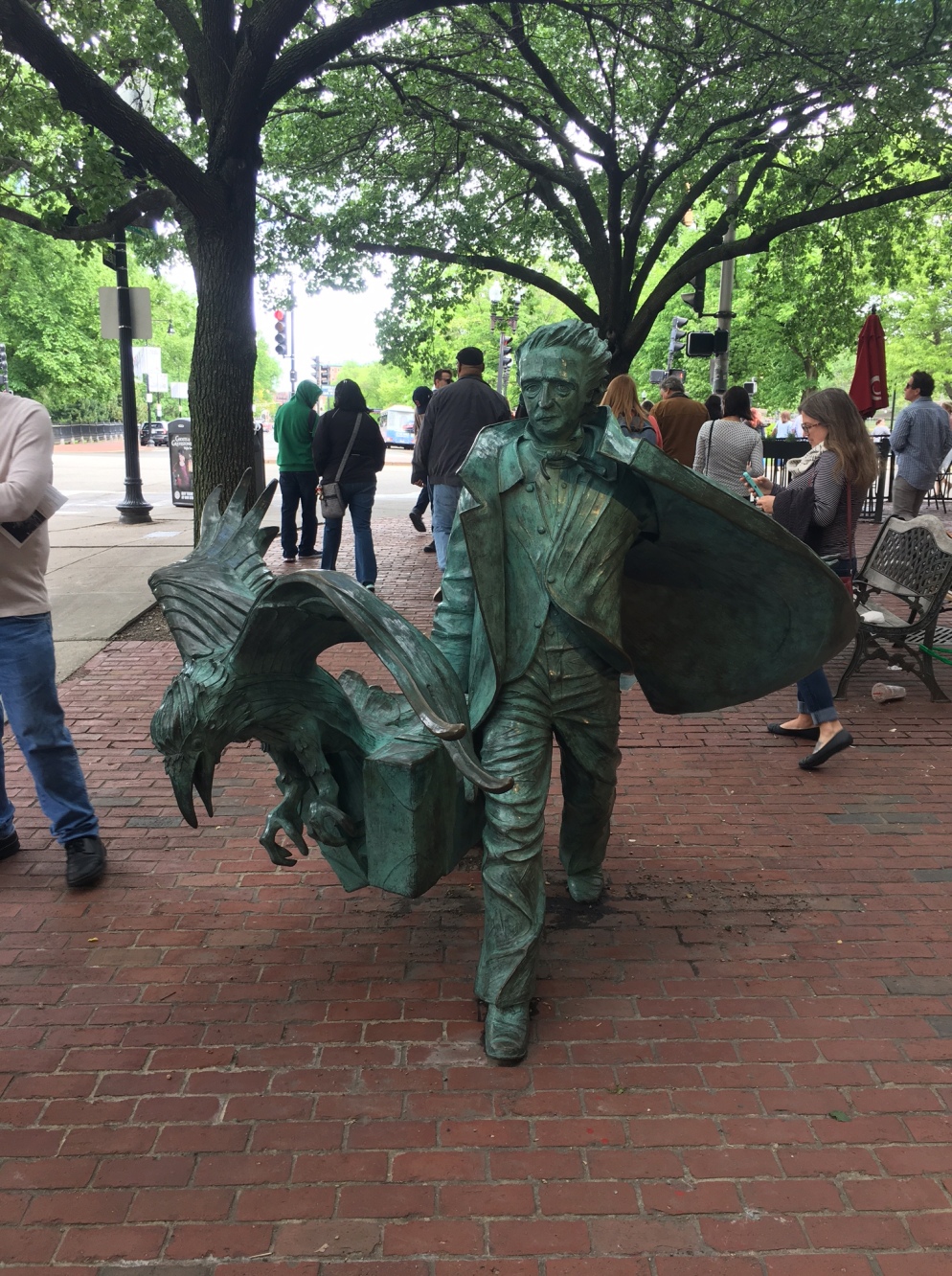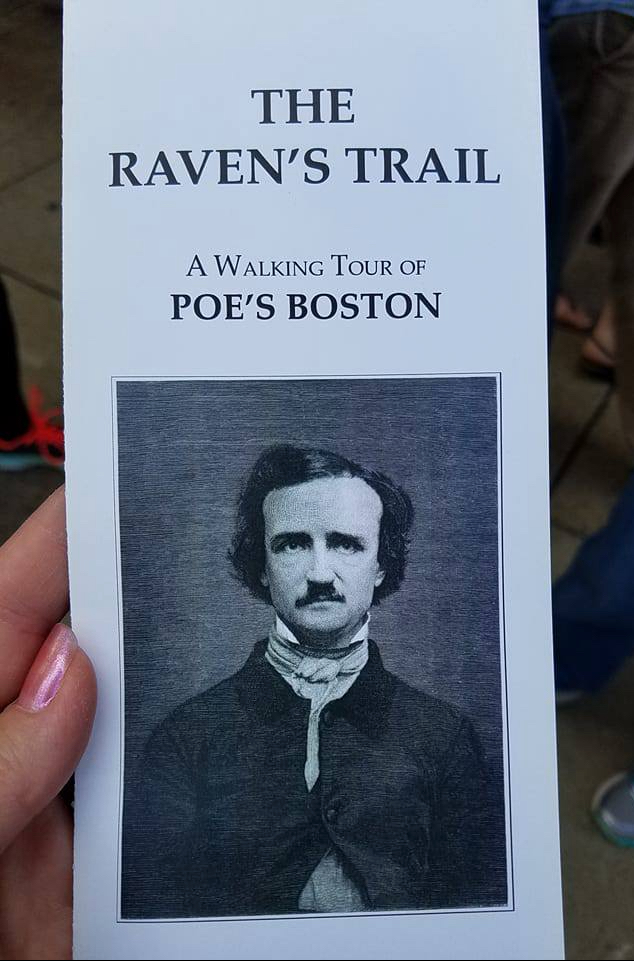
During our third full day of our Boston trip, our two classes embarked upon a walking tour dedicated to Edgar Allen Poe. During this tour, we visited the Boston Common and the Frog Pond where many other writers gathered for inspiration, whom Poe referred to as Frogpondians.

It was rather difficult to hear the walking guide for about half of the tour, but one of the most memorable discussions was about Poe’s blasting of other authors. The guide explained that Poe was very critical of other poets and writers, accusing some of stealing ideas from his own work. The guide told us that Poe’s accusations are humorous because Poe himself plagiarized while writing several of his stories. David Lee Clark explains in his article “The Sources of Poe’s the Pit and the Pendulum” that Poe used William Mudford’s “The Iron Shroud” as inspiration for the pendulum aspect and Brockden Brown’s Edgar Huntly for the dungeon, the mental state of his character, the fiery dungeon walls, the pit, and the Spanish Inquisition aspects of “The Pit and the Pendulum” (350, 351-355). This coincides with what the guide discussed during the tour, which is something I did not previously know about Poe. When I go back and read this story again, I will pay more attention to the details that Poe took from the aforementioned works. I will also pay more attention to details in his other stories, and it would be interesting to research the liberties Poe may have taken with his these works.
Along with Poe’s bout with plagiarism, the guide also told our group about Poe’s reading at the Boston Lyceum. Poe read after several other authors, and the audience did not appreciate his work with the same level of enthusiasm as they did other authors. The guide explained that Poe was booed off the stage, likely because his poetry was so different from other poets’ work.
Poe is also known for his criticism of poets such as Henry Wadsworth Longfellow and Charles Sprague. The walking guide informed our group that Poe gave a lecture where he bashed such authors so harshly that he quite shocked and disgusted his audience. According to the brochure from the walking tour, “Poe defended art for art’s sake” (The Raven’s Trail par. 4). Poe had a strong personality, so it is not surprising that he was so vocal about authors he did not particularly like.

According to Doug Boulter, Poe likely wrote a poem titled “Lines on Ale” that is a parody of Longfellow’s poem titled “Psalm of Life” (17). Since the tour guide shared with the group how critical Poe was of authors like Longfellow, this statement is not much of a stretch. Boulter states “Near the end of his life, Poe became angrier and angrier toward Longfellow and the Bostonians”, and in a letter Poe wrote to Frederick Thomas, he says “‘I wish you would come down on the Frogpondians'” (19). I was not at all surprised upon finding this article, and although it is not completely certain that Poe did indeed write “Lines on Ale”, considering his distaste for Longfellow and other Frogpondians, I agree with Boulter that Poe is the likely author of this poem.
“Lines on Ale”:
Fill with mingled cream and amber,
I will drain that glass again.
Such hilarious visions clamber
Through the chamber of my brain–
Quaintest thoughts-queerest fancies
Come to life and fade away;
What care I how time advances?
I am drinking ale today. (Boulter 17)
Edgar Allen Poe’s life could be easily and very interestingly adapted to film. Judging by the walking tour, there seems to be adequate information about Poe’s life to create a fairly accurate portrayal of the famous author. The guide shared with us that Poe’s mother, Eliza Poe, greatly influenced his decision to come back to Boston after leaving the area. This aspect of Poe’s life would be a fantastic addition to any film adaption about him. There should not be a singular focus on the good aspects or the unpleasant aspects of Poe’s life, but rather an accurate combination of the two. This distinction may not seem to make a significant difference, but as John Dean explains, “How a story is told is as important as its subject matter” (par. 4). The setting should also be carefully considered, and each part of the story should ideally be set in the actual places Poe lived and visited. Dean shares that “Authentic setting both enhances the veracity of an epic movie and gives the popular audience a tantalizing insight into the people and places that helped to make history happen” (par. 22). In other words, setting is just as important as the characters themselves. As for the script, it can be difficult for individuals to remain completely unbiased about a person they are trying to portray, so it may be best to find a script writer who knows nothing about Poe aside from raw information about him.